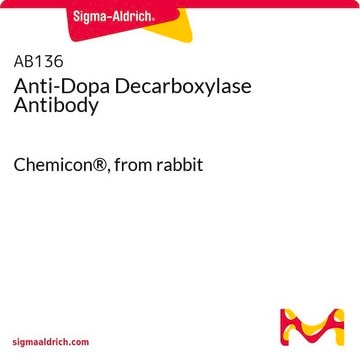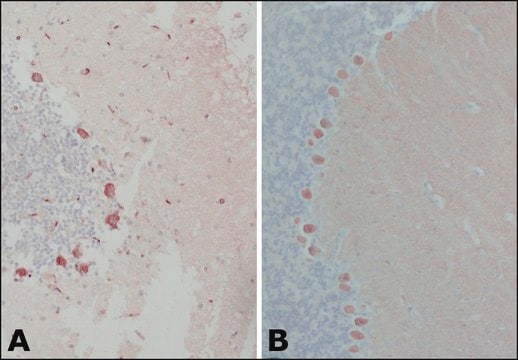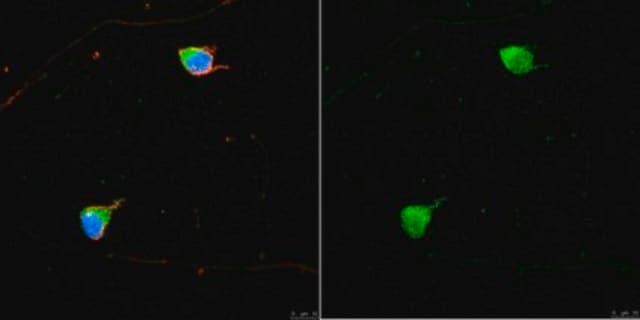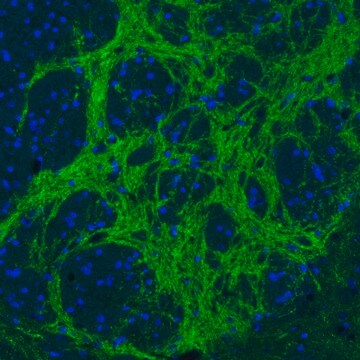PC253L
Anti-Calbindin D-28K (Ab-1) Rabbit pAb
lyophilized, Calbiochem®
About This Item
Recommended Products
biological source
rabbit
Quality Level
antibody form
serum
antibody product type
primary antibodies
clone
polyclonal
form
lyophilized
contains
≤0.1% sodium azide as preservative
species reactivity
baboon, monkey, rat, human
manufacturer/tradename
Calbiochem®
storage condition
OK to freeze
avoid repeated freeze/thaw cycles
isotype
IgG
shipped in
ambient
storage temp.
−20°C
target post-translational modification
unmodified
Gene Information
human ... CALB1(793)
rhesus monkey ... Calb1(677721)
General description
Immunogen
Application
Vibrotome Sections (1:5000-1:10,000 for biotin-streptavidin/peroxidase detection, see application references)
Warning
Physical form
Reconstitution
Analysis Note
Rat striatum, hippocampus, or cortex
Other Notes
Heizmann, C.W. 1993. Acta Neurobiol. Exp.53, 15.
Baimbridge, K.G., et al. 1992. Trends Neurosci.15, 303.
Heizmann, C.W. and Hunziker, W. 1992. Trends Biochem. Sci.16, 98.
Legal Information
Not finding the right product?
Try our Product Selector Tool.
recommended
Storage Class Code
10 - Combustible liquids
WGK
WGK 1
Flash Point(F)
Not applicable
Flash Point(C)
Not applicable
Certificates of Analysis (COA)
Search for Certificates of Analysis (COA) by entering the products Lot/Batch Number. Lot and Batch Numbers can be found on a product’s label following the words ‘Lot’ or ‘Batch’.
Already Own This Product?
Find documentation for the products that you have recently purchased in the Document Library.
Our team of scientists has experience in all areas of research including Life Science, Material Science, Chemical Synthesis, Chromatography, Analytical and many others.
Contact Technical Service








